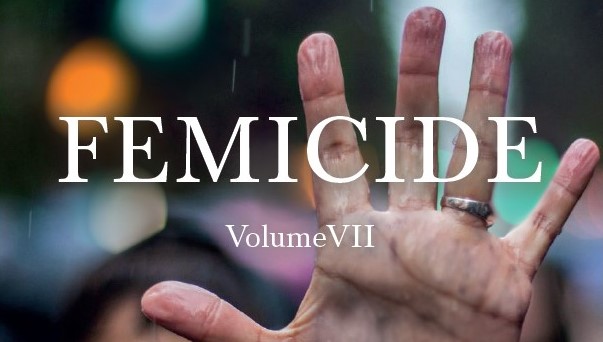We would like to bring to your attention the following review of data collection and compilation of articles
FEMICIDE VII : Femicide – Establishing a Femicide Watch in Every Country,
produced by The Academic Council on the United Nations System (ACUNS).
ACUNS is a non-governmental organisation that stimulates, supports and disseminates research on the United Nations, other international organisations and issues of global governance.
_
Preface
Unless there is accurate and comparable data collection on a given crime, there will be no proper understanding of it and no effective strategy with which to combat it. Having clear data helps law makers and government officials win the public’s support for tackling it through targeted prevention and investigation resources. Femicide has been defined as murder of a woman by an intimate partner or family members and the targeting of women by criminal gangs or as a weapon of war. It has been universally recognised as a crime. But how do horrific crimes of this type so often slip under the radar? Why is it so difficult to collect data on such an abhorrent criminal activity and, subsequently, to arrest the perpetrators?
In 2015 Dr. Dubravka Šimonović, UN Special Rapporteur on Violence against Women called for “the establishment of femicide watches or observatories on violence against women which should collect data on gender related killing of women and femicide and analyse, with the assistance of interdisciplinary review panels, all femicide cases including court decisions in order to identify gaps in the intervention system, criminal justice and criminal procedures system, as well as risk factors to prevent and protect women and girls from those killings.”
FEMICIDE VII will provide a special focus on data collection on femicides: what the challenges are, what is being done currently, and what we should be doing in the future.
On 25 November 2016 in Vienna, Austria, experts from around the world gathered for an ACUNS/OSCE UNODC symposi um entitled “Combating Femicide”; Dr. Šimonović reiterated the importance of establishing a Femicide Watch in each country. Excerpts from this conference are featured in this publication; they include UNODC Deputy Executive Director Aldo Lale-Demoz, the Austrian Ambassador Clemens Koja. and Biljana Branković, member of the Group of Experts on Action against Violence against Women and Domestic Violence.
We felt it essential to include a chapter on Latin America in this publication. Through various actions by the public, most
notably the movement NiUnaMenos and other women’s organizations, laws have been changed in many countries of Central and South America, in part thanks to the collection of data. This campaign has been very successful across Latin America to raise public awareness and put pressure on governments to better tackle violence against women and invest more in preventive measures.
Outside of Latin America, other groups are having an impact. Sick of the police‘s apathetic approach to reporting on femicides, Karen Ingala Smith, who also spoke at the November 25 OSCE symposium, started to record victims of femicide herself. As a result of her initiative, the volunteer-run Femicide Census project was established in the UK. Another article in this publication comes from the Minnesota (US) Battered Women’s Coalition, which has been compiling an annual report on femicide for nearly thirty years. We are also very pleased to feature contributions from the some of the experts who took part in the EU COST action “Femicide across Europe” study.
_
Foreword
Given the persistence of all forms of violence against women including femicide, fragmented legislative response and the serious lack of comparable data on femicide at a global, regional, and national level, I have called for the establishment of a “Femicide watch” that would contribute to prevention of such violence. These national bodies – Femicide watches or Observatories on femicide should collect and publish numbers of femicides throughout the year on the 25 November – International Day on the Elimination of Violence against Women –disaggregated by age and sex of the perpetrators, as well as the relationship between the perpetrator and the victim or victims.
I have been impressed by the young scholars and activists of the Academic Council on the United Nations System in Vienna and Mr. Michael Platzer who have been outraged by the many heinous forms of the gender related killing of women and girls. Since 2012, they have organised high level discussions with Member States both in Vienna and New York on diverse issues and successfully promoted the adoption of two General Assembly resolutions on gender related killing of women. This is now the seventh volume of FEMICIDE. This publication serves as a useful handbook of what is being done and said at the United Nations and other international bodies but also gathers information about research and actions taken by women’s organisations, academics and countries from around the world. It is a great example of civil society collaboration with UN mandate holders and effective cooperation with member states.
Dr. Dubravka Šimonović,
UN Special Rapporteur
on violence against women,
its causes and consequences.
_


